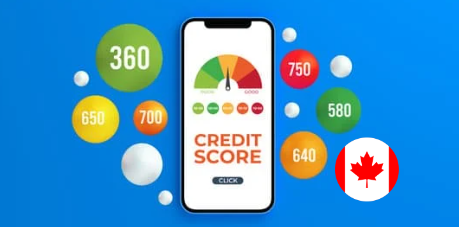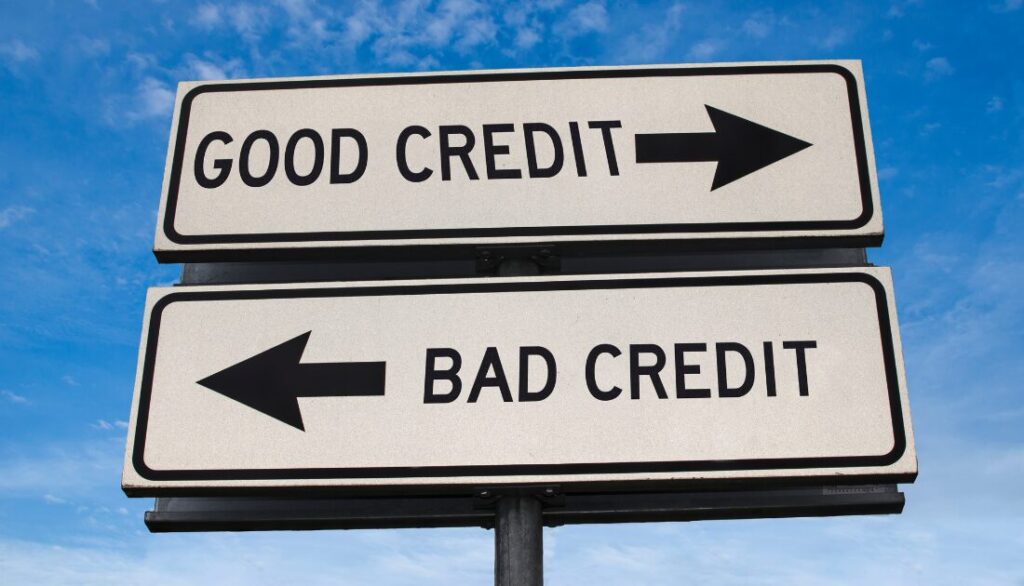Struggling with debt can significantly impact your financial well-being, especially if your credit score suffers. Fixing credit scores is important because a poor credit score can mean higher interest rates on credit cards and loans, making it more expensive to borrow money. We will discuss how fixing your credit score can save you money, offering practical solutions and insights tailored to Canadians grappling with personal finances and debt.
The Impact of a Bad Credit Score
Table of Contents
ToggleUnderstanding Your Credit Score
Your credit score in Canada is a three-digit number that lenders utilize to determine your creditworthiness. In Canada, our credit scores start from 300 at the lowest and go to 900 at the highest. The higher your score, the better. Credit reporting agencies compile your score based on factors such as your payment history, the amount you owe, the length of your credit history, the amount and frequency of new credit inquiries, and the kinds of credit you currently use.
A good credit score is essential because it influences the interest rates you can access on loans and credit cards. A lower score usually means higher interest rates, which can cost you significantly over time. Understanding the factors that affect your credit score is the first step in understanding and eventually improving it. By keeping track of your score and the information on your credit report, you can take informed actions to enhance it.
How Bad Credit Makes Life Costlier
Living with a low credit score has tangible costs. Lenders view poor credit as an indicator of risk and often compensate by charging higher interest rates. This means that if you’re approved for a loan or credit card, you’re likely to pay more over the life of the loan than someone with a better credit score. Over time, this interest can add up to thousands of dollars in additional payments.
Those with bad credit who urgently need cash may be forced to use payday loans or other predatory lenders because they don’t have another option. These lenders are among the worst, charging the highest interest rates legally possible. You need to be able to pay them back promptly to avoid ending up in an even worse situation.
Additionally, a bad credit score can affect your ability to secure a rental, as landlords might view you as a high-risk tenant and refuse your application or charge a higher deposit.
Some employers check credit scores during hiring so that a poor score might impact your job prospects. A bad credit score can make various aspects of life more expensive and less accessible, so it is essential to build solid credit.

Fixing Credit Scores
6 Practical Steps to Better Credit
Check Your Credit Regularly
Rebuilding your credit doesn’t happen overnight, but consistently applying smart financial habits can improve your score. You can check your credit report for any errors and resolve inaccuracies right away. Your credit score will not be affected when you check your own credit – this is known as a soft credit check.
Pay On Time
Pay your bills on time, every time, as your payment history is the most significant factor affecting your credit score. Work on paying down existing debt, especially on high-interest credit cards, as this lowers your credit utilization ratio—a key factor in credit scoring. In fact, you don’t have to wait for your bill! Paying your credit cards more frequently can also have a positive benefit. It helps to lower the credit utilization on your cards, which is a factor that goes into your credit score. Make a practice to pay your bill twice monthly, or even make a weekly payment instead of waiting for the bill to arrive.
Be Mindful of Your Accounts
Avoid opening new credit accounts too frequently, as this can be a red flag to lenders and may temporarily lower your score. Keep your oldest cards open once paid off – that maintains your credit history which impacts your score.
Build Credit Using Your Own Money
If you have no credit or are rebuilding, consider using a secured credit card. This card requires a deposit that serves as your credit limit. You are using your own money to build credit instead of borrowing. Use it for small purchases and pay off the balance monthly. This responsible behaviour can help build a positive credit history.
Don’t Be Late!
Making timely repayments is crucial for building a good credit score. When you pay your bills on or before the due date, you establish a track record of reliability. Lenders and creditors favour borrowers who consistently meet their financial obligations because it suggests future loans will also be repaid on time.
Late payments, on the other hand, can significantly damage your credit score. Even a missed payment can stay on your credit report for up to seven years.
Automate
To help set you up for success, you can set payment reminders or enable automatic payments through your bank to ensure you’re making payments on time. This can help you avoid late fees and potential negative hits to your credit score.
If you need help to make a payment, contact your lender immediately to discuss options that may prevent a late payment record.

How Good Credit Saves Money
Lower Interest Rates and Better Terms
One of the most significant benefits of a good credit score is securing lower interest rates on loans and credit cards. Lenders reserve their best terms for customers who demonstrate financial responsibility. A high credit score shows that you are more reliable and a low-risk borrower, which means banks are more likely to offer you competitive interest rates.
A reduced interest rate could save you thousands over the life of a mortgage, car loan, or student loan. For instance, on a large loan like a mortgage, even a fraction of a percentage point in interest can significantly affect the interest you pay over the term.
Good credit often leads to better terms on credit cards, such as higher credit limits, rewards, and cash-back offers. These perks enhance your purchasing power and can provide opportunities for saving money through rewards programs.
Opportunities Unlocked by Good Credit
Good credit saves you money on interest rates and opens the door to opportunities that might otherwise be out of reach. For instance, with a strong credit score, you may qualify for a mortgage that allows you to buy a home, which can be essential in building personal wealth. Additionally, you might have access to premium credit cards with generous rewards programs that offer travel benefits, cash back, and other incentives.
Beyond borrowing, fixing credit scores can influence insurance premiums, as some insurers consider credit scores when setting rates. A higher score could mean lower premiums on auto or home insurance. Lastly, a good credit score may simplify the rental process, as you’re more likely to be approved quickly and without needing a larger security deposit. Good credit can enhance your financial flexibility and give you a broader range of choices in life.
How to check your credit for free in Canada
In Canada the two major credit reporting agencies, Transunion and Equifax, don’t make it easy to get your credit check for free. But by utilizing a service like Borrowell you can easily access your credit for free in Canada.
The bottom line
If you have a low credit score and you want to fix your credit, it is possible, it just takes some time and focus. Building and maintaining good credit can significantly improve your financial life. Conversely, having bad credit has an impact that adds additional layers of challenge that those in an already precarious financial situation have difficulty getting over. It can take time, but improving your credit score can have additional benefits and is worthwhile to pursue.
About The Author
Jessica Morgan
Jessica Morgan is the founder and CEO of Canadianbudget.ca. She is passionate about personal finance and helping Canadians improve their financial literacy by providing more Canadian focused financial content. A millennial mom of one, she has a burning obsession with all things personal finance.
Jessica has a BA in East Asian Studies from York University and a Masters in Business Administration from Toronto Metropolitan University. She is a career public sector employee with a Hybrid Pension, and an advocate for Canadian women to improve their personal finance knowledge.


